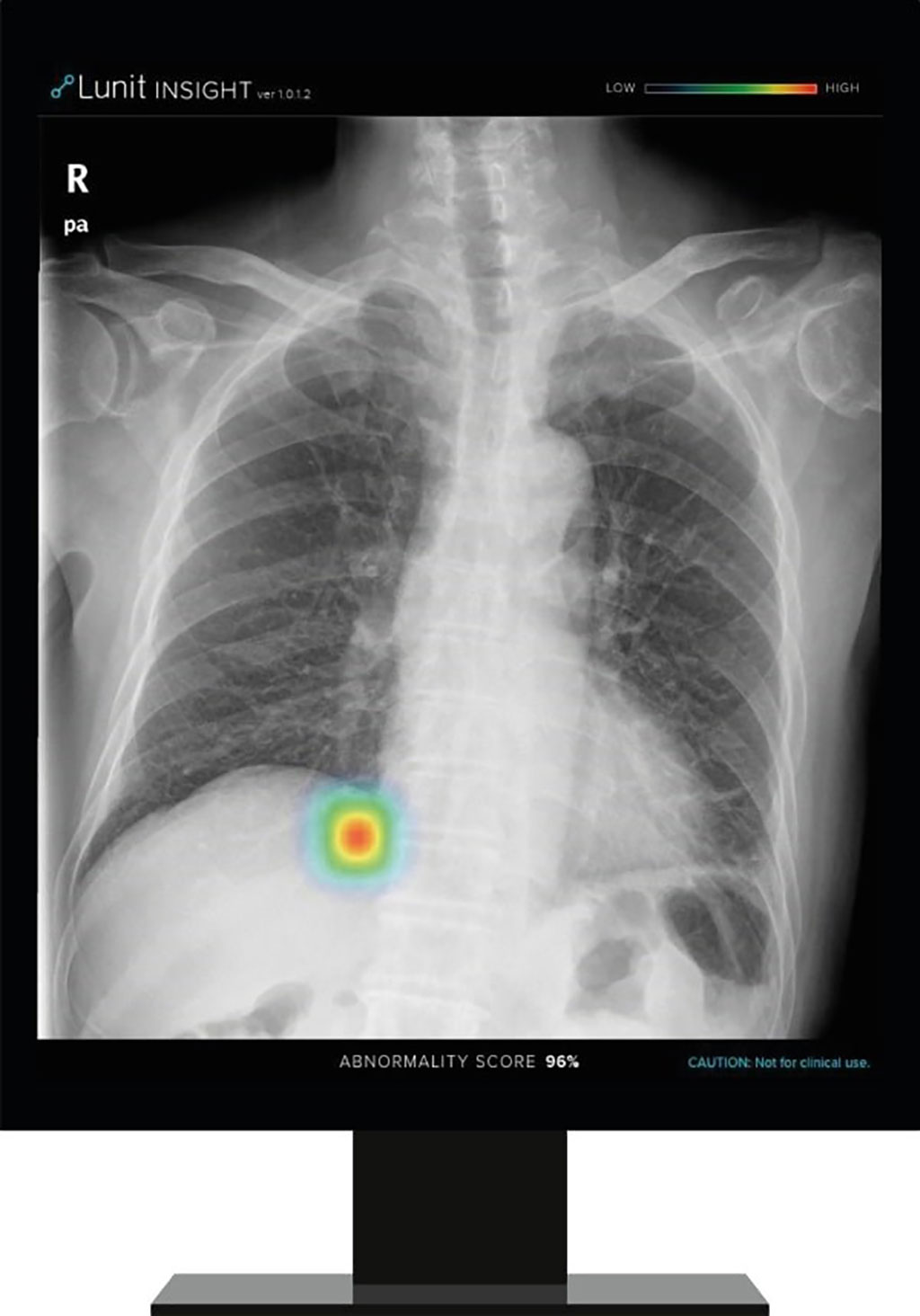AI Suite Detects Most Common Chest X-Ray Findings
By MedImaging International staff writers
Posted on 05 Oct 2021
A new collaboration between Royal Philips (Amsterdam, The Netherlands) and Lunit (Seoul, South Korea) will make Lunit's AI software, the Insight CXR chest detection suite accessible to users of Philips' diagnostic X-ray solutions. CXR detects ten of the most common findings in a chest X-ray, incluindg small and subtle pulmonary nodules overlapped in the hilar shadow, ribs, heart, and diaphragm, enabling radiologists to reduce overlooked lung cancer cases, especially during regular check-ups.Posted on 05 Oct 2021
Lunit Insight CXR is designed to instantly analyze of chest X-ray images by mapping radiological findings and displaying a scored calculation of actual existence. The algorithm shows a 97-99% accuracy rate in the detection of lung nodules, calcifications, consolidation, fibrosis, pneumothorax, pneumoperitoneum, cardiomegaly, pleural effusion, mediastinal widening, atelectasis, and tuberculosis. Data on the detected lesions is presented in the form of heatmaps and/or contour maps, with an abnormality score reflecting the AI’s calculation of the actual presence of the detected lesion.

Image: Insight CXR detects abnormalities on a chest X-ray image (Photo courtesy of Lunit)
“Radiology departments and their technologists are continually under pressure. They face high patient volumes, and every improvement in workflow can make a big impact,” said Daan van Manen, general manager for diagnostic X-ray at Philips. “Our partnership with Lunit to incorporate their diagnostic AI into our X-ray suite combines with a host of smart workflow features in the Philips radiography unified user interface (Eleva), across our digital radiography systems that enables a smooth and efficient, patient-focused workflow.”
“By partnering with Philips, one of the biggest medical device companies globally, our AI will be available to its significant global installed base. With the start of this partnership, we look forward to further expanding our collaboration to make data-driven medicine the new standard of care,” said Brandon Suh, CEO of Lunit. “Lunit will continue to build upon its current AI offering, making it better and better with time, and will continue to deliver best-in-class AI.”
Related Links:
Royal Philips
Lunit








 Guided Devices.jpg)





